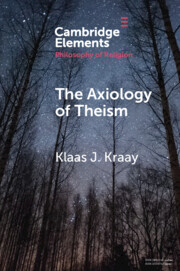Element contents
The Axiology of Theism
Published online by Cambridge University Press: 16 September 2021
Summary
- Type
- Element
- Information
- Online ISBN: 9781108592833Publisher: Cambridge University PressPrint publication: 14 October 2021
References
- 11
- Cited by

